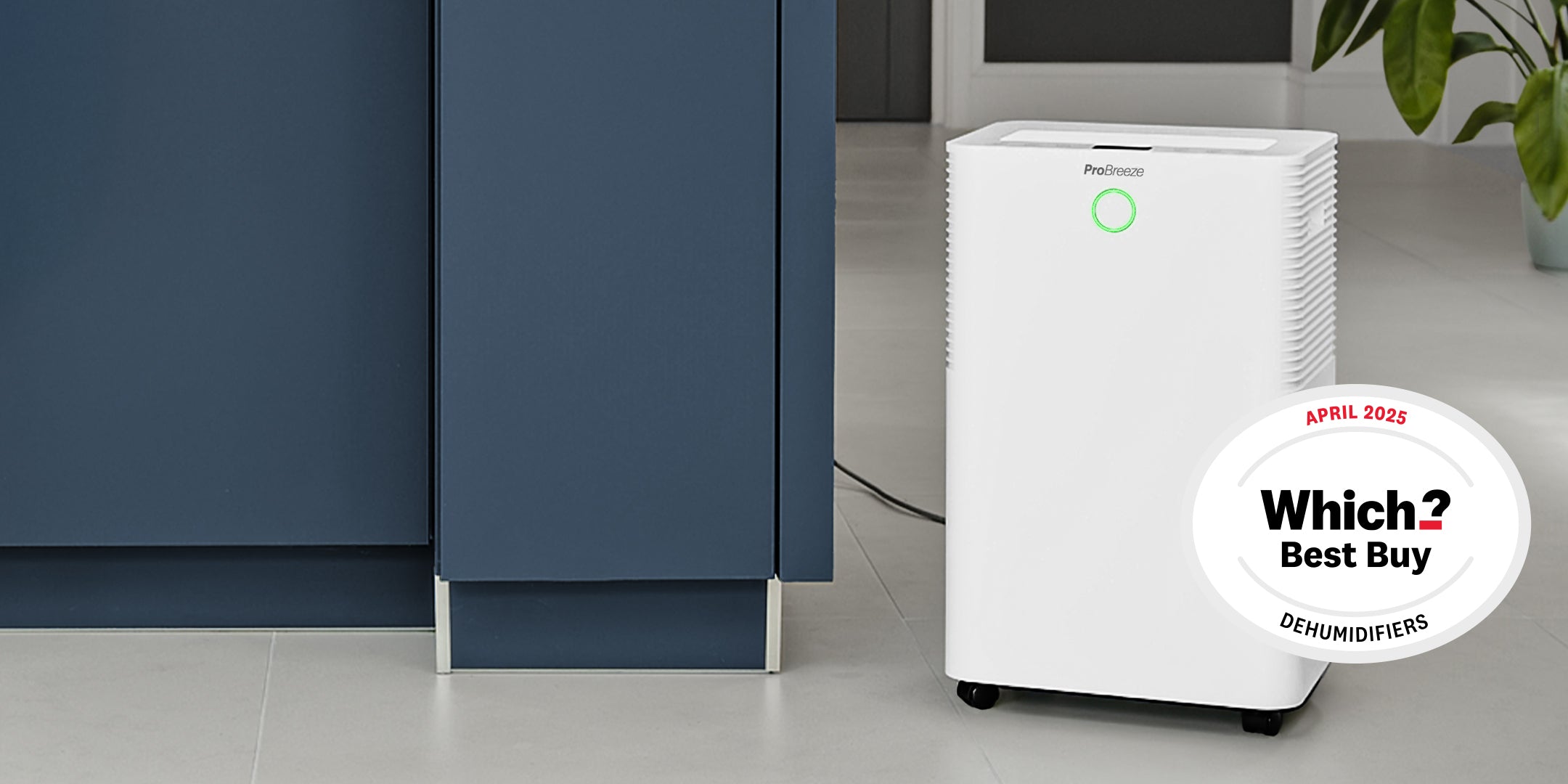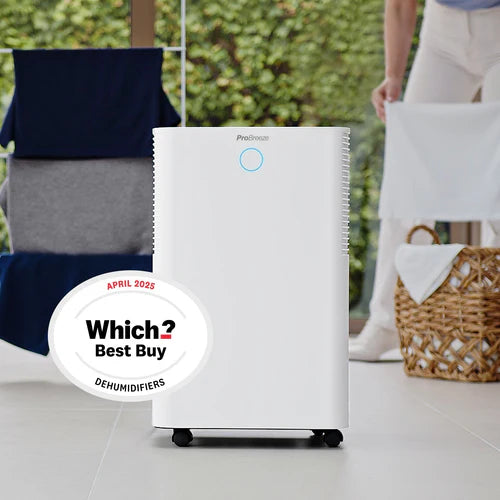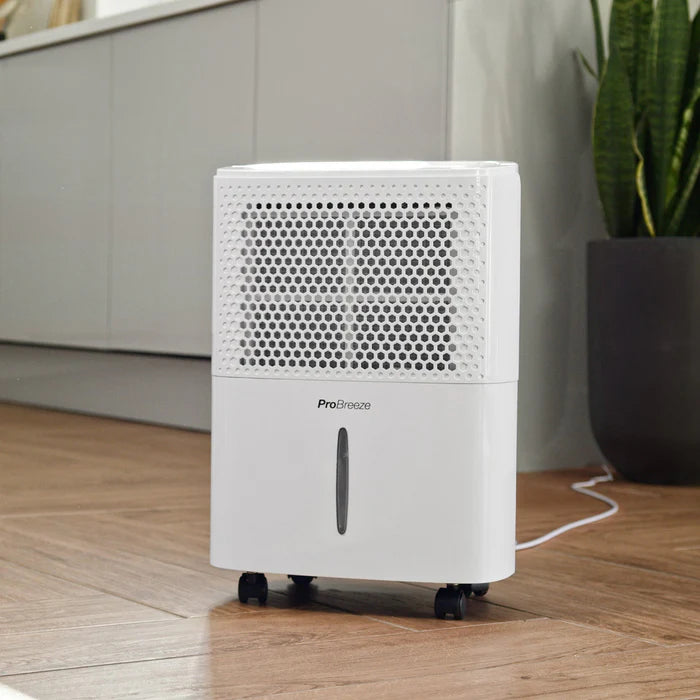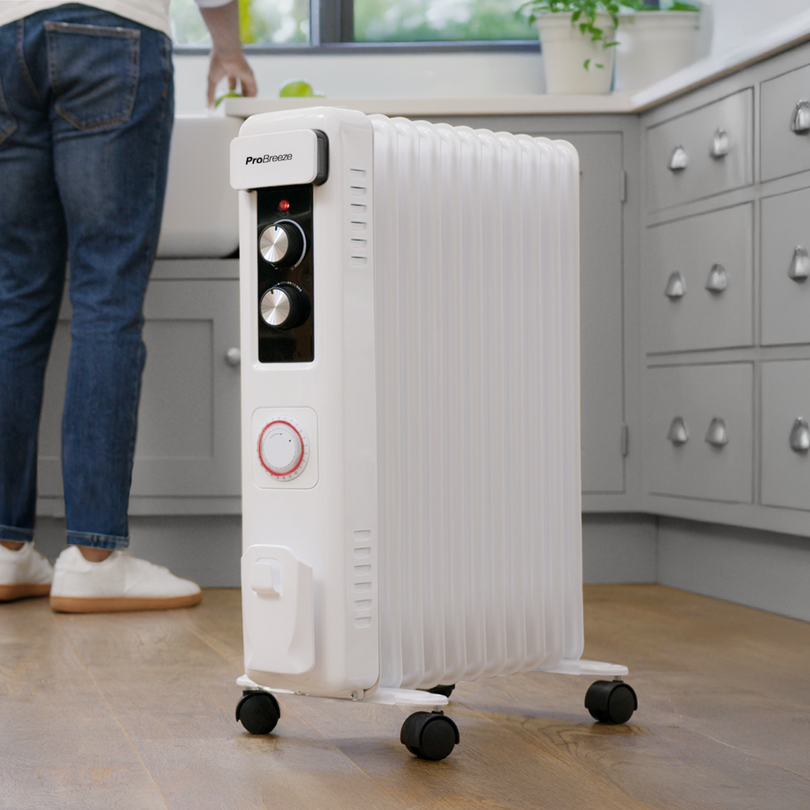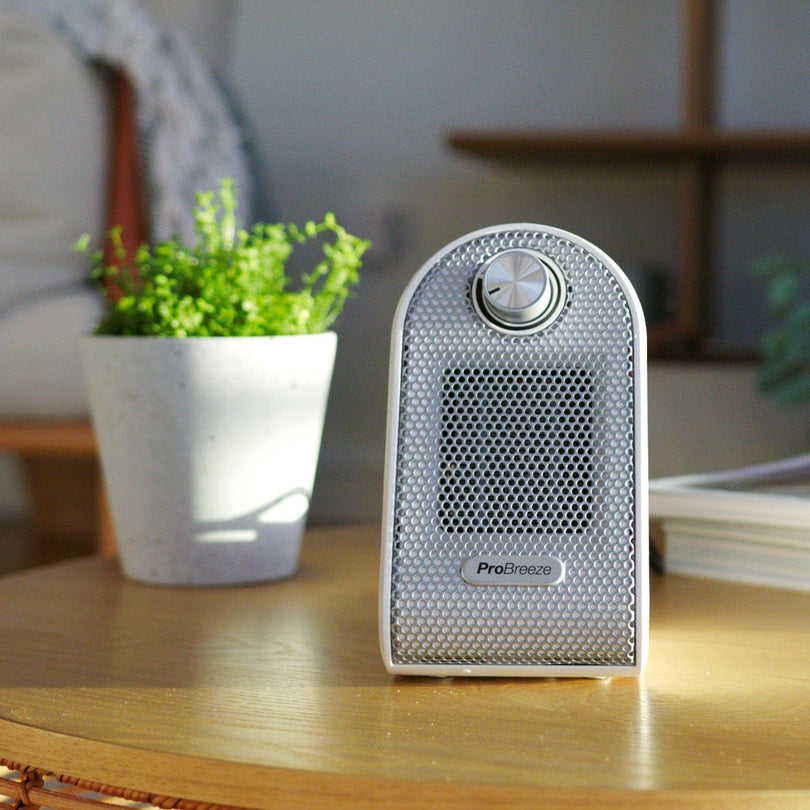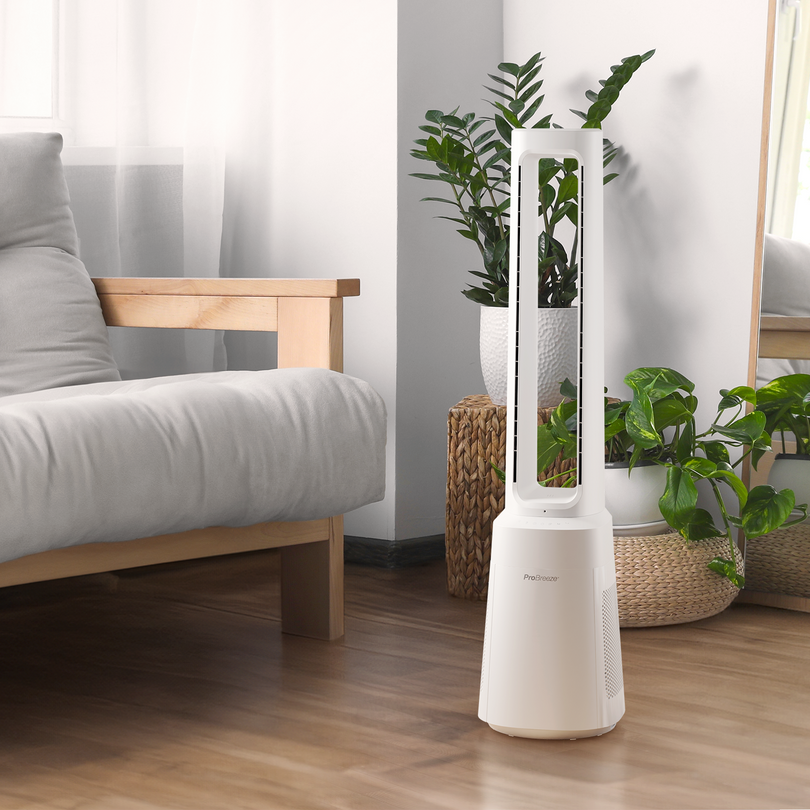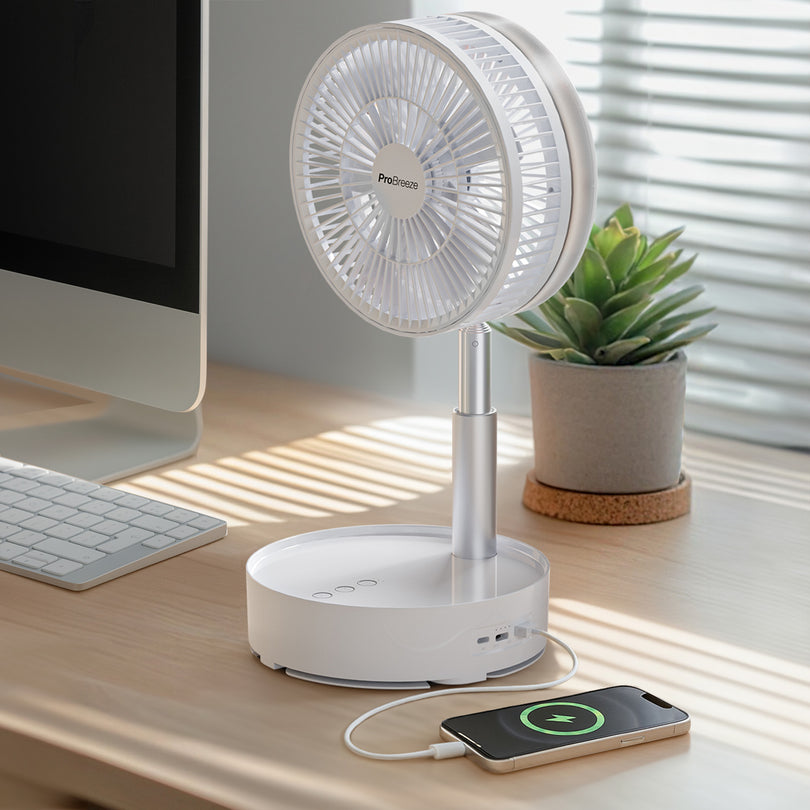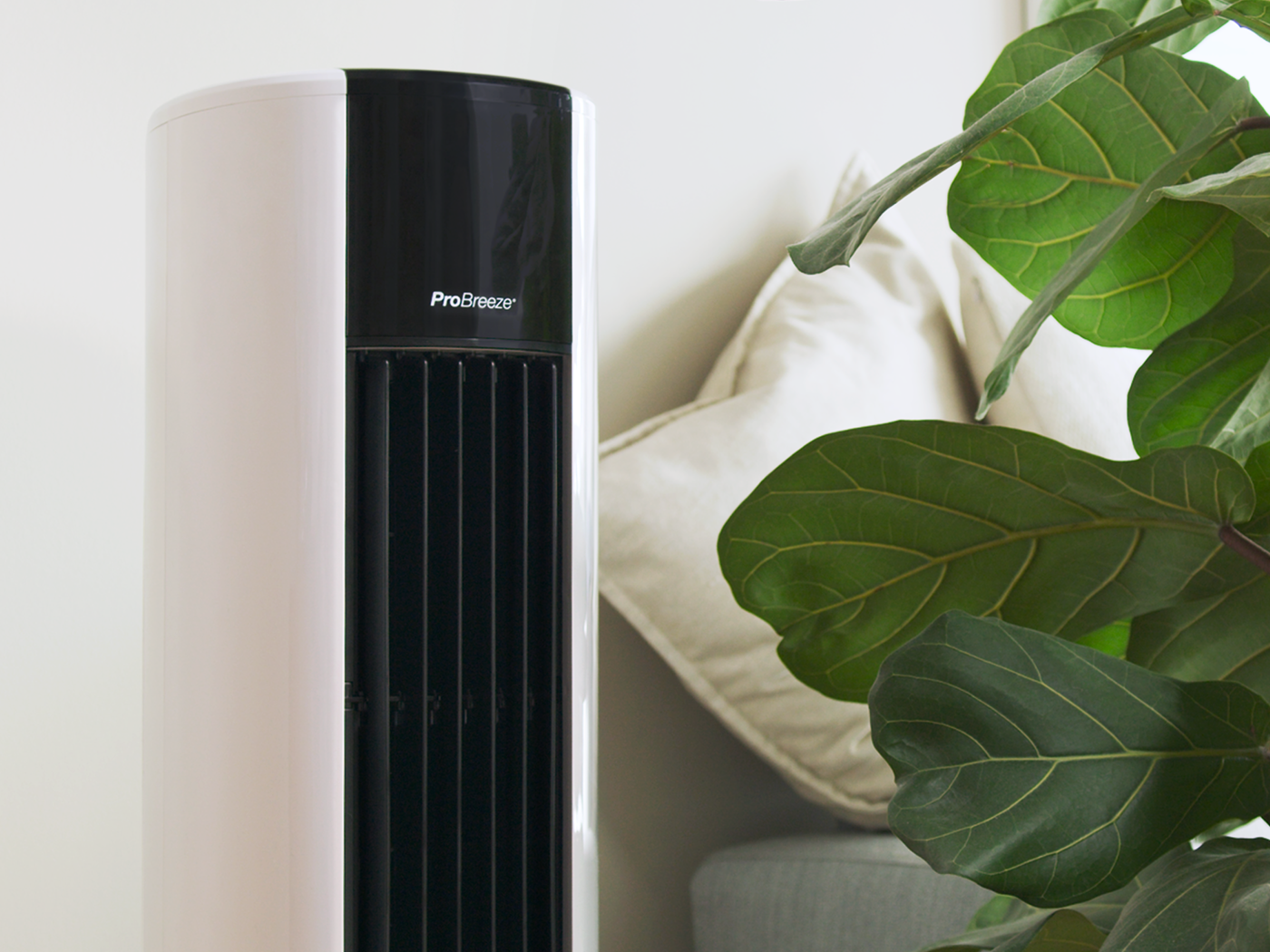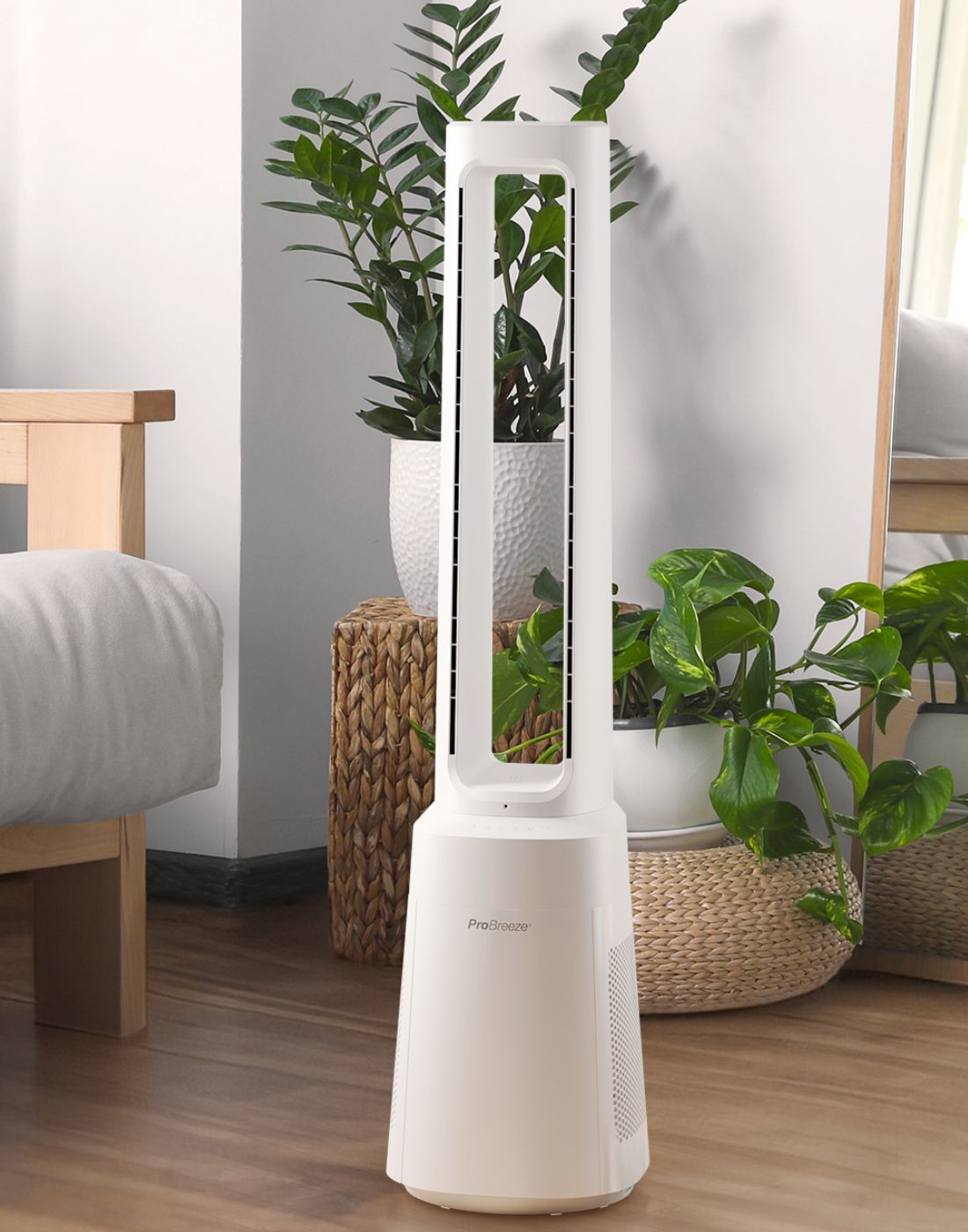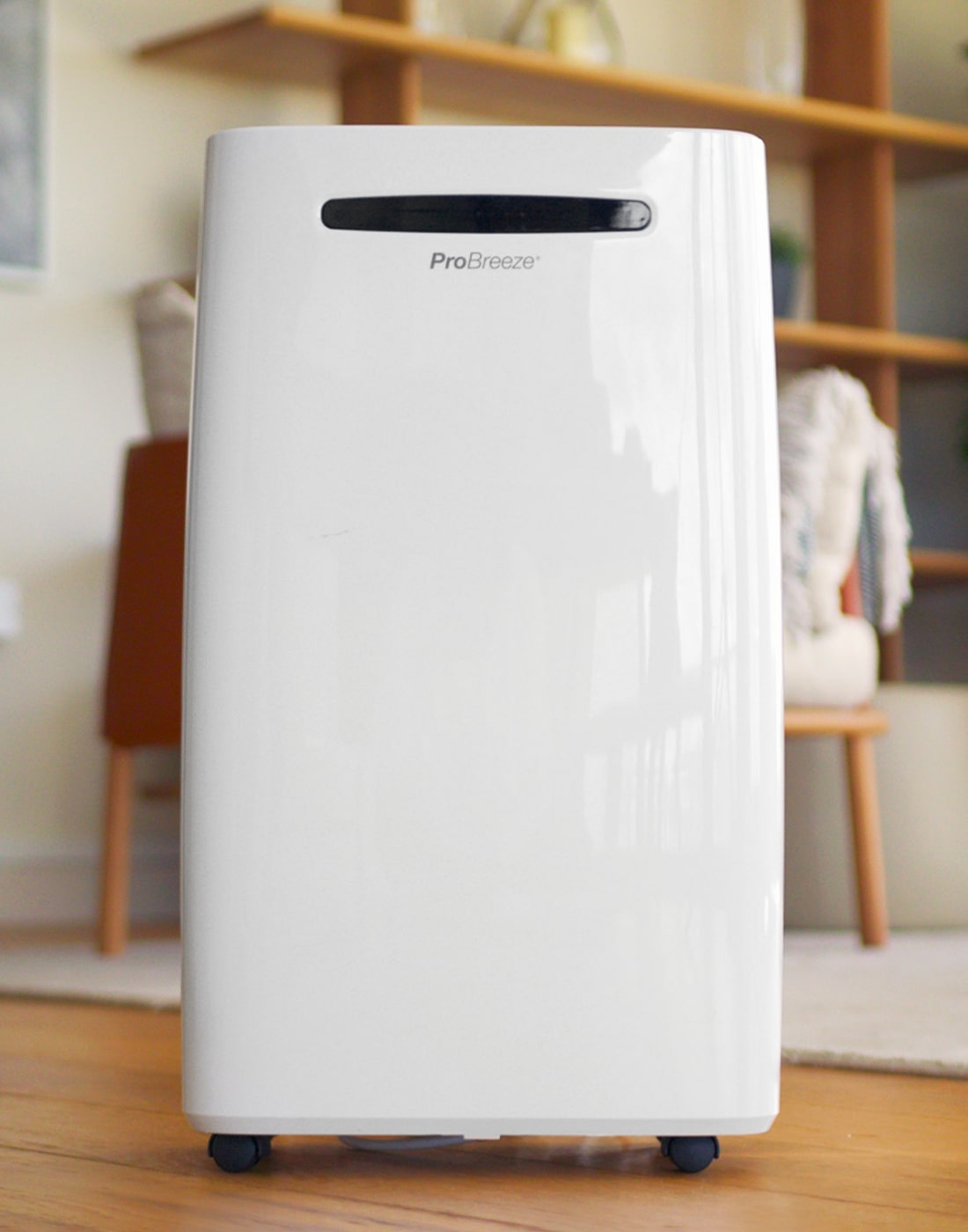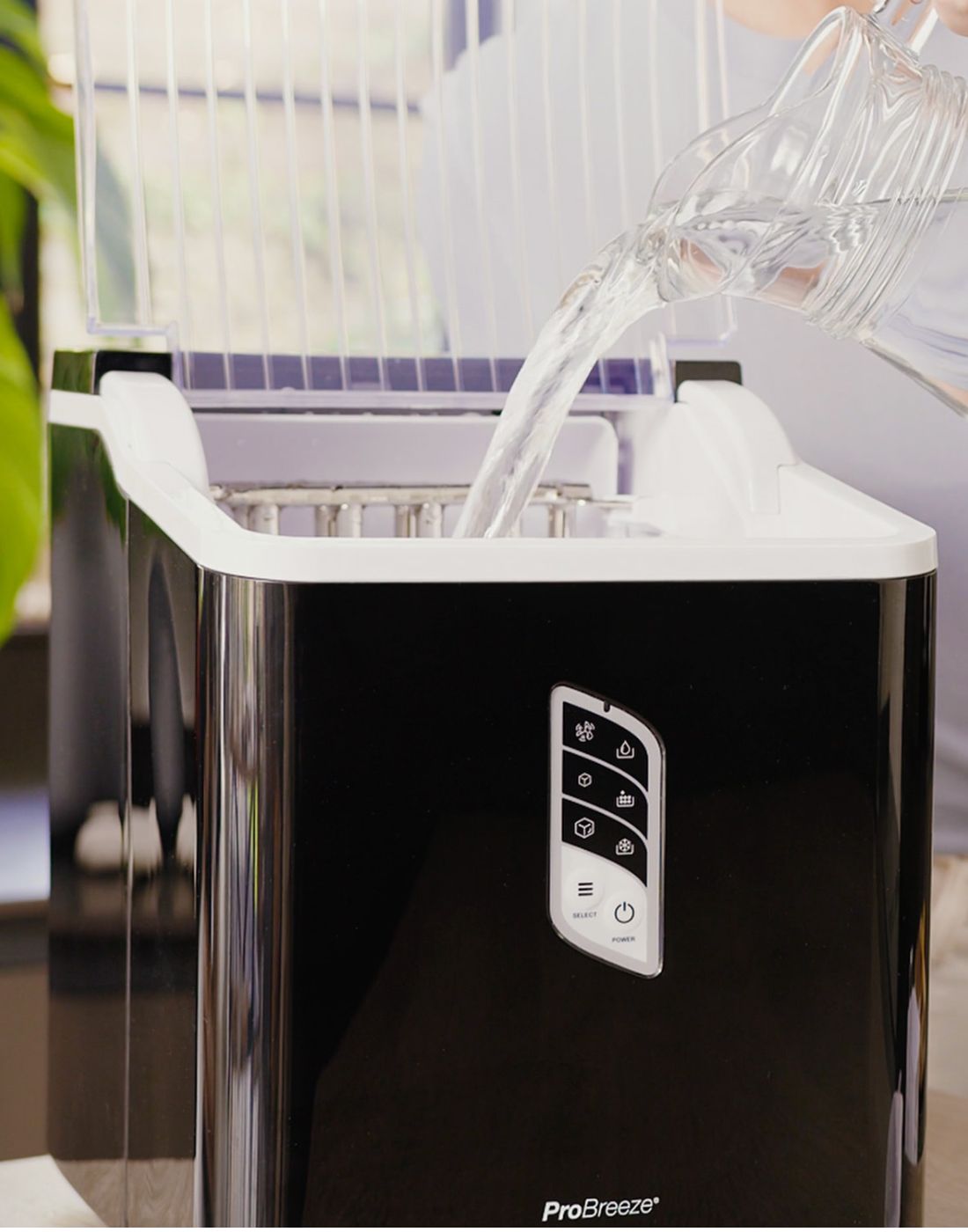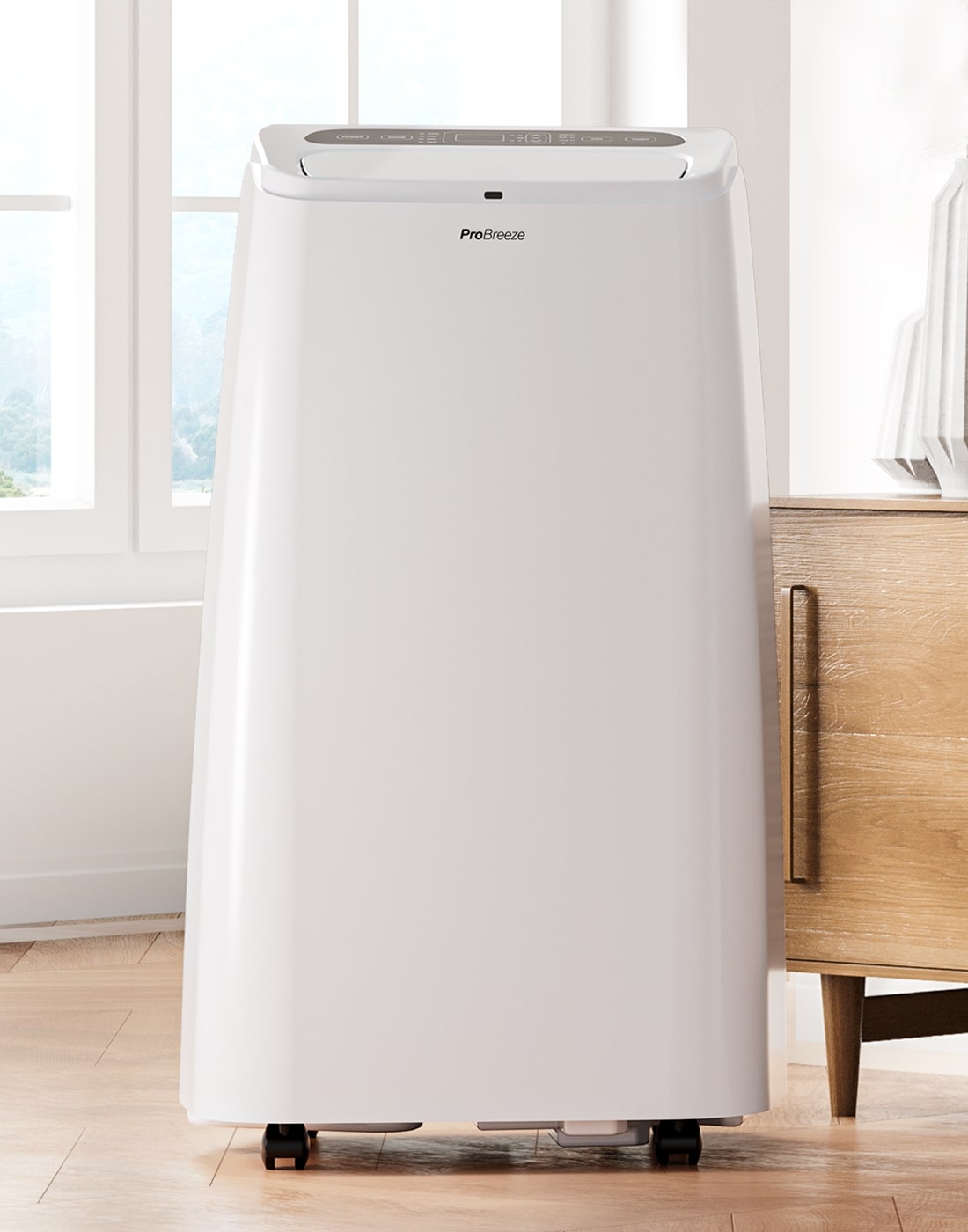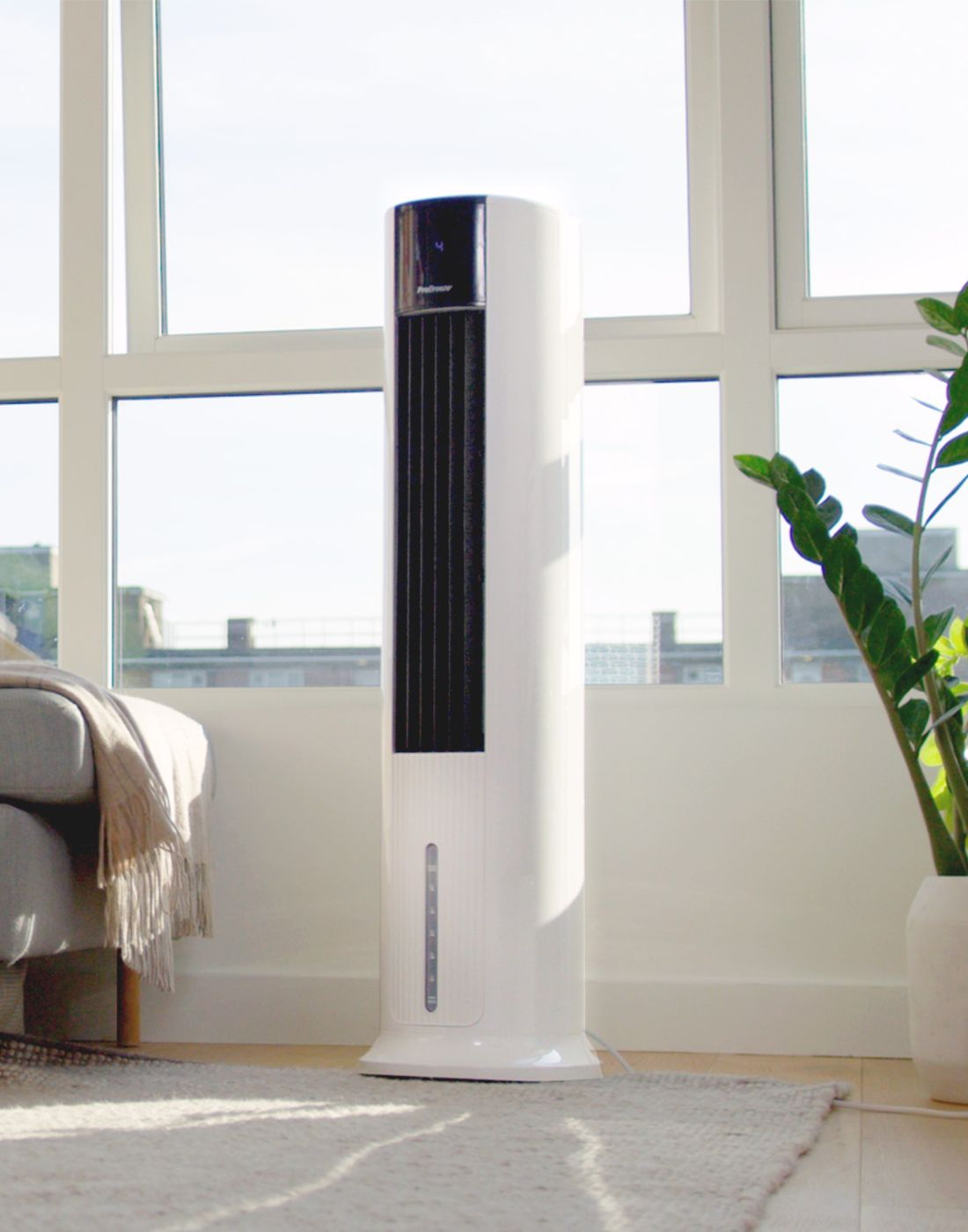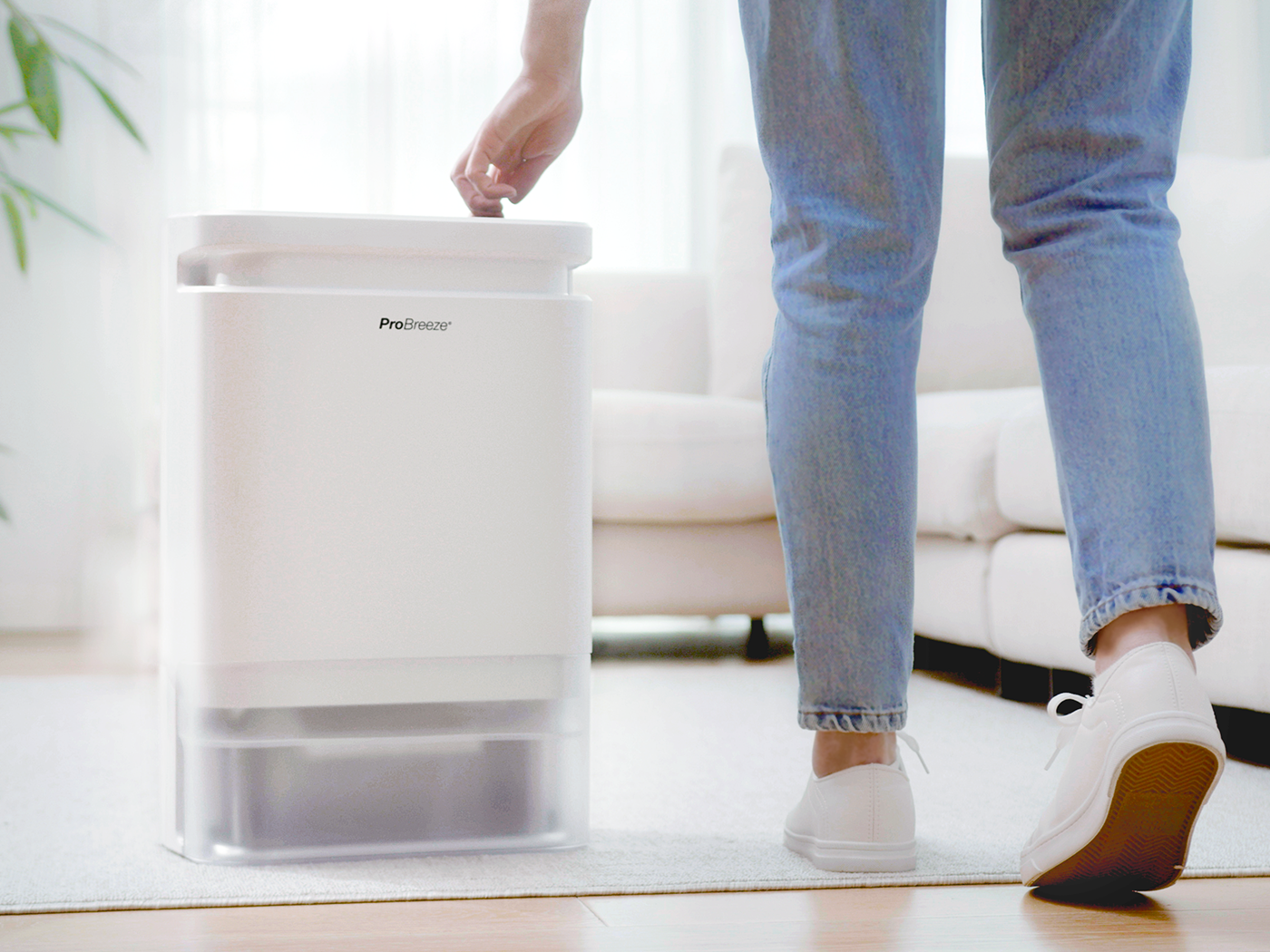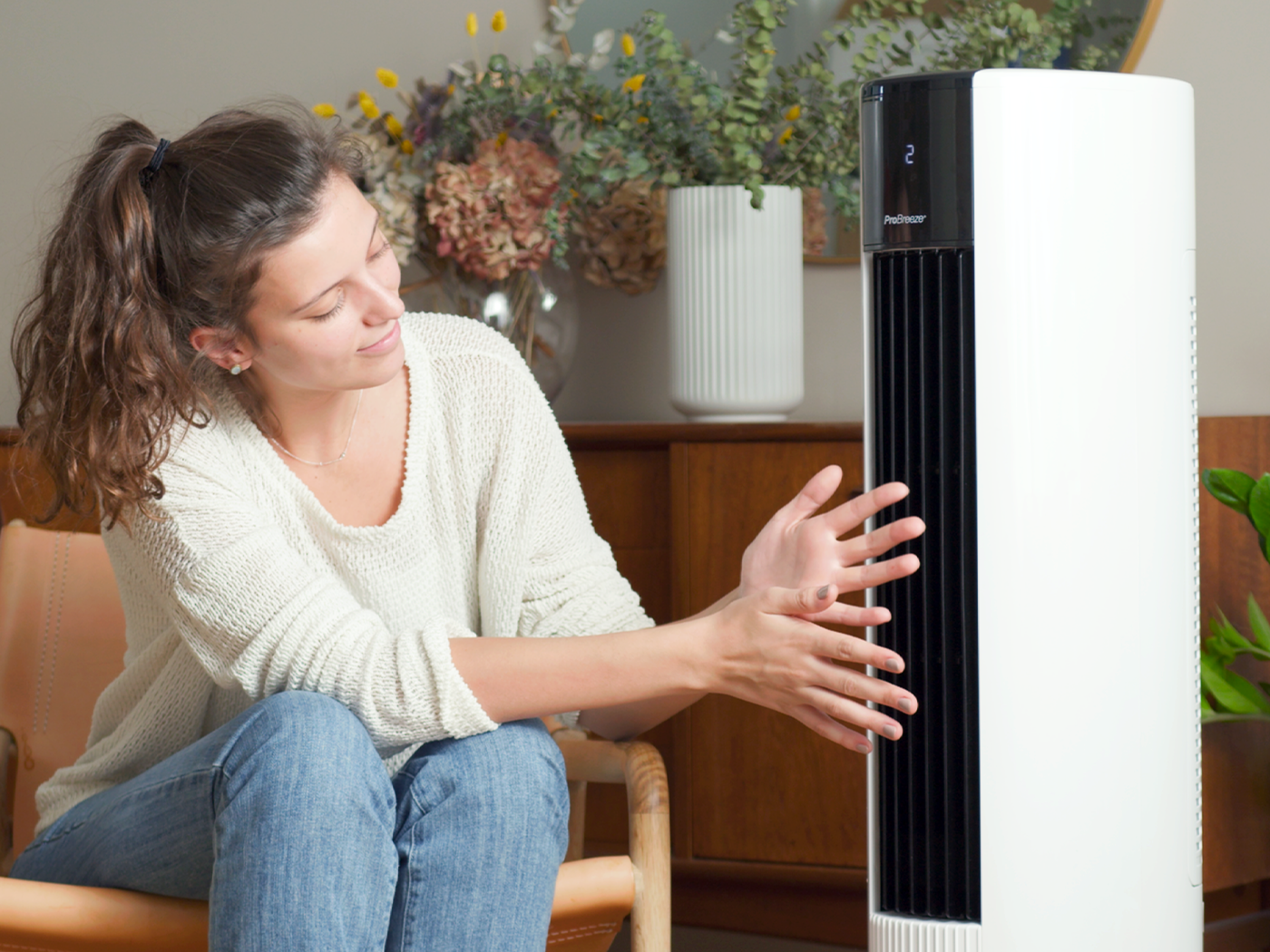Ahhh, the summer months. Trips to the seaside, picnics in the park, and… brutally hot weather! Whenever the temperature starts to ramp up across the UK people start searching for air coolers and air conditioners online. As the mercury tops 25 degrees it can become stiflingly hot indoors and sleeping becomes difficult for adults and children alike. Investing in an air conditioner or air cooler can really help to ease the heat and make your home’s temperature much more pleasant.
However, during those online searches, it becomes increasingly important to know the differences between air coolers and air conditioners. While they will both keep you cool, there are some key differences between the two. This article explains all you need to know about making this important consumer decision.
How do air coolers and air conditioners work?
-
What is an Air Cooler?
While many people confuse air coolers with air conditioners, they are completely different types of appliances. Air Coolers are not equipped with complex components or gas and as a result, they are smaller and cheaper than air conditioning units. They work by sucking in warm ambient air that passes over a damp honeycomb filter in the unit. A cold-water tank in the unit keeps the honeycomb filter wet and as the water evaporates the air is cooled and then spread throughout the space by an internal fan.
-
What is an Air Conditioner?
In many ways, Air Conditioners are like a refrigerator, but instead of securing the cold air inside they blow the air around the room. Air conditioners utilise refrigerant gas to cool down the warm air in a room and then blow the now-cooled air around the space with internal fans. They must vent the hot air outside (usually via a window, ventilation shaft, or dedicated passage) with an exhaust hose.
The Key Differences between air coolers and air conditioners
- Air coolers don’t require any outside ventilation, while air conditioners must be vented.
- Air coolers work best when placed near an open door or window.
- Air conditioners can lower the temperature far more than is possible with an air cooler.
- Most air coolers can also be used as a humidifier.
What should you consider when buying an air cooler?
-
Will an air cooler be effective for your climate?
While evaporative cooling is cost effective and easy to use, it is not always the most effective solution. If you live in an extremely hot or humid climate, you might find more relief from the heat with an air conditioning unit. Air coolers work best in areas with a hot, dry climate.
-
Can you leave a window or door open?
In contrast to air conditioning units, air coolers are at their most efficient when placed in a room with an open door or window. This allows fresh air to circulate throughout the space. If you cannot leave a door or window open due to noise, insects or security concerns, an air cooler might not be best for you.
-
What size is your space?
Before you place an order for an air cooler you need to assess your space and decide what size unit will work best for you. If you buy an evaporative water cooler that is not big enough for your space, it will work extra hard all in vain and therefore wasting energy and failing to keep you cool. You need to consider an air cooler’s CFM (Cubic Feet per Minute) rating. This refers to the amount of fresh air that will cycle through your room each minute. Calculate your CFM by multiplying the square footage you need to cool by the ceiling height. Divide this number by two, and that is your CFM.
What should you consider when purchasing an air conditioner?
-
What size room are you cooling?
In order to determine the best air conditioner for your space, you first need to know a little bit about BTU. A BTU (British Thermal Unit) is a rating used to determine the heating (or in the case of an air conditioner, the cooling capacity) of an appliance. As a general rule, we advise you to buy an air conditioner with a minimum 7000 BTUs, as this is the minimum required to cool even a small room (18sq/m) on a hot day. Medium rooms (24sq/m) need around 9000 BTUs, and larger spaces (36sq/m) require around 15000 BTUs. A 9000 BTU air conditioner is a solid choice for most residential homes, as it packs a big enough punch to cool lounges, bedrooms and common areas without draining your bank account.
-
Energy efficiency and running costs
Speaking of running costs, your next cause for concern should be the model’s energy efficiency rating. The higher the rating, the lower the running costs. A++ is the most economical and G the least economical. While a higher-end model might cost a little bit more money at the outset, it will save you heaps of money in the long run.
-
Your budget
Whilst you may dream of a home fully fitted with a complex air conditioning system, you need to assess your budget before you make any decisions. Air conditioners cost more to purchase than air coolers and use more electricity over time.
-
Key features and functions
When you make the decision about which air conditioner to purchase, you should consider its key features and functions. Is a timer important to you? Do you want remote access so that you can control your air conditioner from afar? Consider how important these special features are to you before you make a decision.
-
Where do you plan to place the unit?
Finally, you also need to consider where you plan to place your unit. The ventilation will likely dictate the location of your air conditioner unit, as it needs to be near a vent or window.
Conclusion
Whether you choose an air cooler or an air conditioner, this investment can make your home a more pleasant, livable, and healthy environment in the heat of summer. With temperatures only increasing year on year, use this guide to choose a cooling unit that will keep your family cool and happy for years to come.
